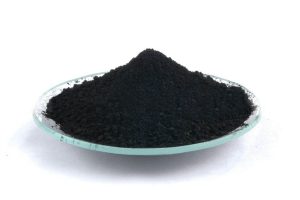
Application of carbon black in battery materials
2023-09-08
In today's society, batteries, as an important energy storage device, are widely used in various fields. However, the performance and efficiency of batteries have always been the focus of attention. Carbon black plays a key role as an important additive in improving battery performance and extending service life.
First, let's understand what carbon black is. Carbon black is a fine particulate matter composed of carbon, usually in the form of black or brownish black. It is produced by the incomplete combustion of organic matter such as oil, natural gas and coal. Carbon black's high surface area and electrical conductivity make it an ideal material for batteries.
What is the importance of carbon black in batteries?
Improve electrical conductivity: Carbon black has good electrical conductivity and can be used as an additive for battery electrode materials. Adding an appropriate amount of carbon black to the electrode can form a conductive network, improve the conduction speed and conductivity of charges, thereby reducing resistance and increasing the power output of the battery.
Enhanced cycle stability: The addition of carbon black can improve the cycle stability of battery materials. It can increase the mechanical strength and anti-oxidation properties of the electrode material, reduce the contact resistance between the electrode material and the electrolyte, delay the loss and corrosion of the electrode material, and thereby extend the service life of the battery.
Improve energy density: Carbon black has a high surface area and porous structure, which can increase the load of active materials in the battery and improve the energy density of the battery. By adding carbon black to battery materials, the effective reaction interface can be increased, the energy storage capacity of the battery can be improved, and the battery can store more energy.
Improve safety performance: The conductive properties of carbon black can help maintain the current balance between the electrode and the electrolyte, effectively reducing the resistance and heat dissipation inside the battery. This helps prevent safety problems such as battery overheating, overcharging, over-discharging and short circuit, and improves battery safety performance.
The application of carbon black in batteries can significantly improve the performance and efficiency of batteries. It offers advantages in conductivity, cycle stability, energy density and safety. The application of carbon black can not only improve the performance of traditional batteries, but also promote the development of new battery technologies, such as lithium-ion batteries, sodium-ion batteries and supercapacitors. Through continuous research and innovation, we are expected to further leverage the importance of carbon black in the battery field, promote the development of battery technology, and provide more efficient and reliable energy solutions for fields such as renewable energy storage and electric vehicles.
The application of carbon black in batteries is mainly reflected in the following aspects:
Improve the conductivity of the battery: Carbon black has excellent conductivity, which can increase the conductive network of the battery, thereby increasing the conduction speed of charges in the battery. This helps reduce resistance and improve the battery's discharge efficiency.
Increase the cycle life of the battery: the application of carbon black in the positive and negative materials of the battery can improve the cycle life of the battery. Carbon black forms a conductive network in the electrode material, stabilizes the charge transfer between the electrodes, slows down the loss and corrosion of the electrode material, and extends the service life of the battery.
Increase energy storage density of batteries: The high surface area and porous structure of carbon black help to increase the energy storage density of batteries. By adding an appropriate amount of carbon black to battery materials, the effective reaction interface can be increased and the energy storage capacity of the battery can be improved.
Enhance battery safety: Carbon black has excellent electrical conductivity, which can provide current balance between electrodes and electrolyte, reducing resistance and heat dissipation inside the battery. This helps prevent unsafe battery conditions such as overheating, overcharging, overdischarging, and short circuits.
Overall, the application of carbon black in battery materials can significantly improve the performance and efficiency of batteries. It provides excellent electrical conductivity, cycle life, and energy storage density while enhancing battery safety. With the continuous advancement of science and technology, the application of carbon black will continue to expand and innovate, making greater contributions to the development of battery technology.
However, we also need to be mindful of the sustainability and environmental impact of carbon black. Currently, some new carbon materials such as graphene and carbon nanotubes are being widely researched and applied. They have higher conductivity and energy storage density and may gradually replace carbon black. At the same time, the production process of carbon black will also have certain negative impacts on the environment. Therefore, it is necessary to strengthen environmental awareness and explore more environmentally friendly and sustainable preparation methods.
In the future, with the continuous innovation and development of science and technology, the application prospect of carbon black in the battery field will be broader. Through continuous research and exploration, we are expected to develop more efficient, safe, and sustainable battery technologies to provide more reliable energy storage solutions for human life and industrial development.
Previous page:How to identify the quality of carbon black?
Next page:How do you test carbon black?

